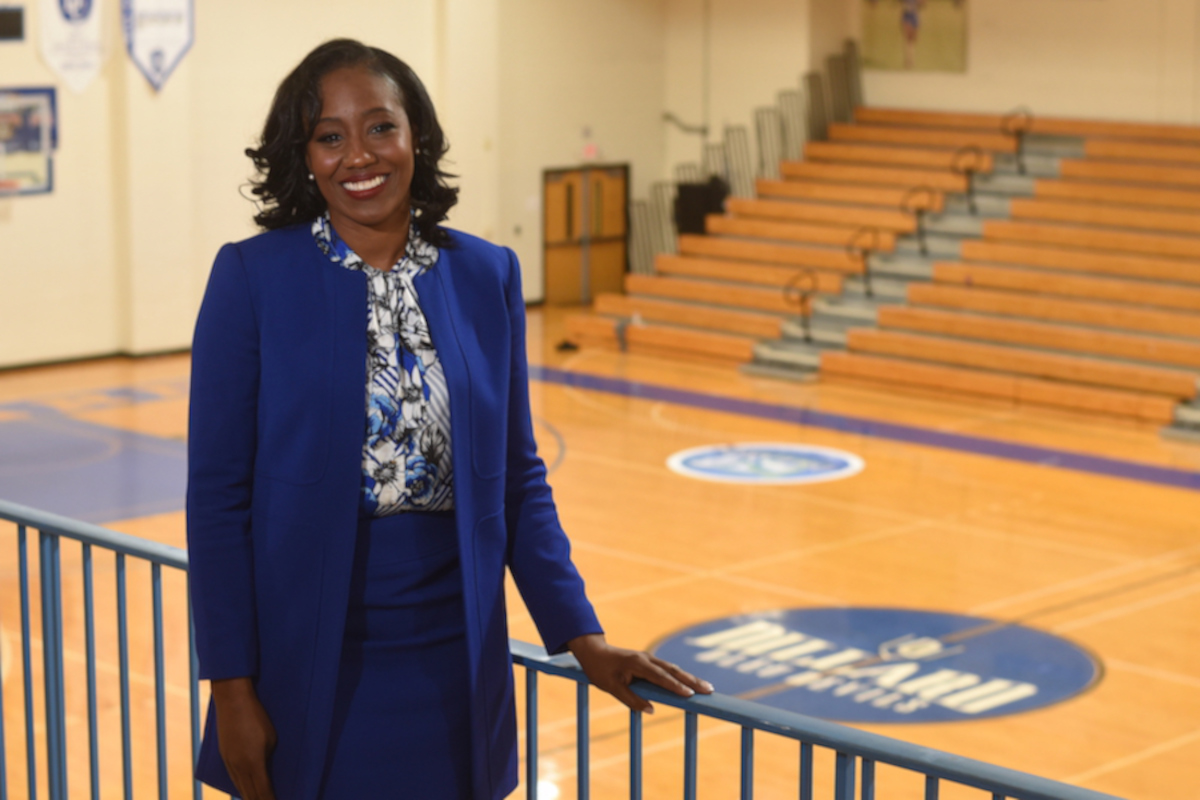Gulf Coast Athletic Conference interim Commissioner Kiki Baker Barnes keeps memories from 15 years close by as the league moves ahead during the COVID-19 pandemic.
The conference recently wrapped up the first leg of its revised league schedule and is set to resume other sports in the spring.
Barnes, who also serves as Dillard University’s athletic director, recalled her experiences of going through the aftermath of Hurricane Katrina and how the lessons she learned shaped her decision-making process during the pandemic.
“I believe having that experience with Katrina helped me keep people focused on the bigger picture and us getting through this together,” Barnes said. “I think that’s a key lesson that helped guide me through this process.”
The GCAC scrapped its 12-game conference slate of home-and-homes and moved to a bubble format for its men’s and women’s teams.
The NAIA reduced the number of required games for schools to be eligible for the national tournament from 18 to 10. Barnes said the NAIA’s decision helped conference leaders move to the bubble format. The GCAC slashed its conference schedule down to six games, and created two bubble series for the league’s men’s and women’s teams to play over two separate sets of days in two different sites.
The GCAC wrapped up its first bubble series a week ago, with men’s teams playing at Talladega while women’s teams played at Xavier. The next series of bubble games, scheduled for Feb. 1-3, will see the women play at Talladega and the men play at Xavier.
Listen: Podcast interview with Dillard University AD Dr. Kiki Baker Barnes
The conference tournament is slated for Feb. 24-28, and will follow the bubble’s testing and screening protocols.
“If all goes well and we don’t get shut down … we still have to be understanding that there may be local, state and federal things that happen that may require us to stop,” she said. “But as long as we’re allowed, we will continue with our plan.”
All teams had to test for COVID-19 48 hours prior to entering the bubble, and test again once arriving at the bubble sites. Women’s teams from Dillard and Tougaloo were not allowed to play in the January bubble due to testing results, but the conference built in Feb. 15-20 as a week for conference members to make up canceled GCAC games.
GCAC teams are still allowed to schedule non-conference games in order to meet the NAIA’s requirements, Barnes said.
The talks she had with conference leaders during the pandemic varied due to different levels of restrictions among the locations of conference members. Barnes said it took some time for some leaders to begin realizing the GCAC will have to adjust as COVID continued to sweep across the country.
“I’ve been in a space where there was a disaster and where everything was kind of just down,” she said. “
Barnes was nine months in her first season as an assistant basketball coach at Dillard when Katrina struck the Gulf Coast in August 2005. The severity of the disaster forced Dillard, like many colleges in the region, to make tough decisions.
Also read: XULA is leaving GCAC to join Red River Athletic Conference in 2021-22
University officials laid off nonessential employees, and Barnes said those layoffs included everyone in athletics except then-athletic director Robin Martin. Dillard also shuttered its athletics program.
“That was a critical misstep for the athletics program. That wasn’t Dr. Martin’s fault,” Barnes said. “She didn’t have any say-so. They just told her what it was going to be. Matter of fact, I don’t think they didn’t even tell her.”
When Dillard resumed functions in 2006, Barnes took over as athletic director and head women’s basketball coach. However, many of the student-athletes that were at the university before the storm left for other colleges. The lessons learned from juggling the two roles while helping rebuild the athletics department were applied as the pandemic began.
Once the pandemic led to shutdowns, Barnes began having conversations with her staff and student-athletes. Figuring out ways to keep staff employed and honoring scholarships became high-priority topics — even if those ways meant not playing games during the 2020-21 academic year.
“At the end of the day, we need to live to fight another day and you still need to be here,” she said. “I remember what happened, and I wasn’t here. All of us who were let go, we weren’t here. When I took over, it was just insane.”
Barnes continued to juggle the two positions at Dillard until 2013, when she stopped coaching basketball and began to solely focus on rebuilding the athletics program. She did not want the program to go through the same things it did after Katrina. Barnes said she also wanted stability in the program while other athletics programs were cutting sports and laying off personnel due to the pandemic.
“That is where I feel the benefit of having gone through Hurricane Katrina helped me to navigate, and the keep my staff and our teams somewhat calm because everything was so up in the air, and we saw this across the country,” she said.







